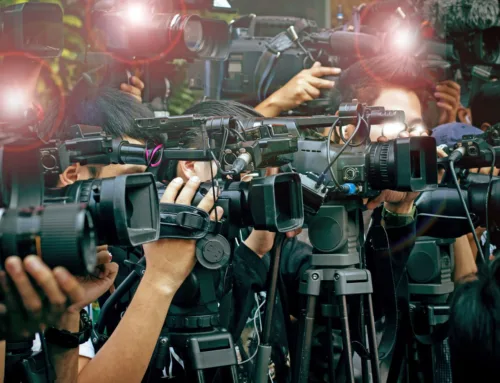French Self-image and Contradictions
The French have obviously more cultural similarities with the Swiss than with Arabs and Asians. Nevertheless, the different communication styles of both communities often lead to misunderstandings. This is revealed in particular by the stereotypes that are nurtured in both cultures. What is stereotype and what is reality? We wanted to pursue these questions and asked the members of a French community at a special event about how they see their culture and what they think of the German-speaking Swiss.
1. Brief portrait of the French culture
1.1. 1.1. Conflicting values
In one of her poems, Fanny de Beauharnais describes the French as contradictory, frivolous and childish. She was a poet and writer of the 18th century. It is hard to believe that an icon of French literature would discredit their fellow citizens in such a way. So, what’s the deal? Indeed, the French are contradictory in their attitude. At least when it comes to individualism and power distance. This is confirmed by Edward T. Hall, an American anthropologist and one of the most famous author in the field of intercultural communication.
The cultural dimension “individualism” also expresses the degree to which people care for themselves and expect less help from the outside. The other cultural dimension, “power distance”, tells us to what extent members of a culture accept inequalities of power. According to Hall, the French cultural dimensions are conflict. Both a high individualism index and a likewise high power distance is the exception among the European countries. Individualists who have respect for hierarchies? This doesn’t quite fit together. This is expressed at the workplace in that supervisors clearly expect obedience from their employees. Employees, on the other hand, show much respect for the hierarchy. Another example of contradictory attitudes is that the people desire a strong state. The French government has always been centralist, and the President has a high degree of command in comparison with other European countries. Emmanuel Macron, the present president plays this role in the same way. At the same time, the people are always ready to protest against the state and to go on strike for months.
1.2. 1.2. The personality cult and the Grande Nation
Rational thinking is of great value to the French. The philosopher and mathematician Descartes still influences their ways of thinking. Nevertheless, planning in France has a different importance than in Germany and Switzerland. In Switzerland, things happen one at a time. In France however, several things go on at the same time. Hall therefore calls them “polychronous”, in contrast to the “monochronous” Swiss and Germans. Perhaps it is because of their polychronic workings that the French have a different style than the Swiss when making appointments and handling deadlines.

1.3. 1.3. A style of communication that not everyone understands
Culture is most clearly expressed in the communication style of a community. Let’s look at an example: if you are invited to dinner with a French manager, you do not talk about business. It is an occasion when the French want to speak of God and the world. It is then necessary to prove their own “culture générale” (general knowledge and awareness). The French love to spend hours discussing politics, history and philosophy. They also have a taste for the beautiful, well-kept language. A style that we Swiss would tend to find complicated. An additional feature makes the French communication style even more complex. Where the Germans are very specific and provide all details of a situation to their counterpart, the French display themselves sparingly. The French expects their counterpart to surmise the situation based on context. Speaking verbosely has a moralizing effect. Hall speaks of “High Context” in contrast to “Low Context” cultures. The French communicate “High Context”. The fact that many misunderstandings arise between these cultures is evident.
1.4. 1.4. France as the exception
With regard to the above-mentioned values and communication style, France is an exception among Western countries: in almost all other countries, individualism is high, but the power gap tolerance is low, as is the case in Switzerland. Cultures with a low individualism usually have a high power distance and vice versa. The polychronic and the “High Context” communication style also make the French culture an exception. The French like it to have an exception status in the world. It cannot be said with certainty whether this is due to the above-mentioned peculiarities but there is a certain logic in this potential correlation.
A portrait of the French, however, would be incomplete and, above all, unfair if one were not to mention their creativity, humor, and idealism. After all, they have exported their French culture in large parts of Africa, Asia and Canada. And in addition to haute cuisine, the Bordeaux wines and the clothing fashion, we must thank them for the Human Rights. And thus for a bit more justice in the world.
2. Our live exchange with the French
We wanted to know how the French compare to the Swiss. How are Swiss people perceived by the French? How do we see the French? And finally, what does the self-perception of the French people look like?
In 2015, we invited the members of “Zurich Accueil” to one of our business events and debated these questions with them. There were a few surprises. Da gab es ein paar Überraschungen. The table below summarizes the statements.
| How the French perceive their culture | How the german-speaking Swiss perceive the French. | How the French perceive the german-speaking Swiss |
|---|---|---|
| We think rationally (according to Descartes’ philosophy). | They blow up everything in a theatrical way. | The Swiss are too serous. |
| We are the culturel exception. | They are sweet talkers. | They are slow. |
| Wir leben libertines. | They are sensitive, feel quickly aggrieved und take everything personally. | They are stubborn but efficient. |
| The French are arrogant and undisciplined grumblers. | They proud and old-fashioned. | The Swiss people are innovative. |
| We like the personality cult | The French are formal, things must be “comme il faut”. | Planing, organizing and discipline are their strenghts. |
| Wir grumble against the state but expect everything from him. | French men are charmers and gentlemen. |
The representatives of the french association “Zurich Accueil” were apx. 15 People. Of course, this was not a dialogue with all French people and the opinions expressed in the above table engage their authors only. However the congruence between the content of our dialogue and the more scientific description made in the paragraph “Brief portrait of the French culture” is striking.
Ihre Kommentare sind willkommen!
Author: Noureddine Yous






